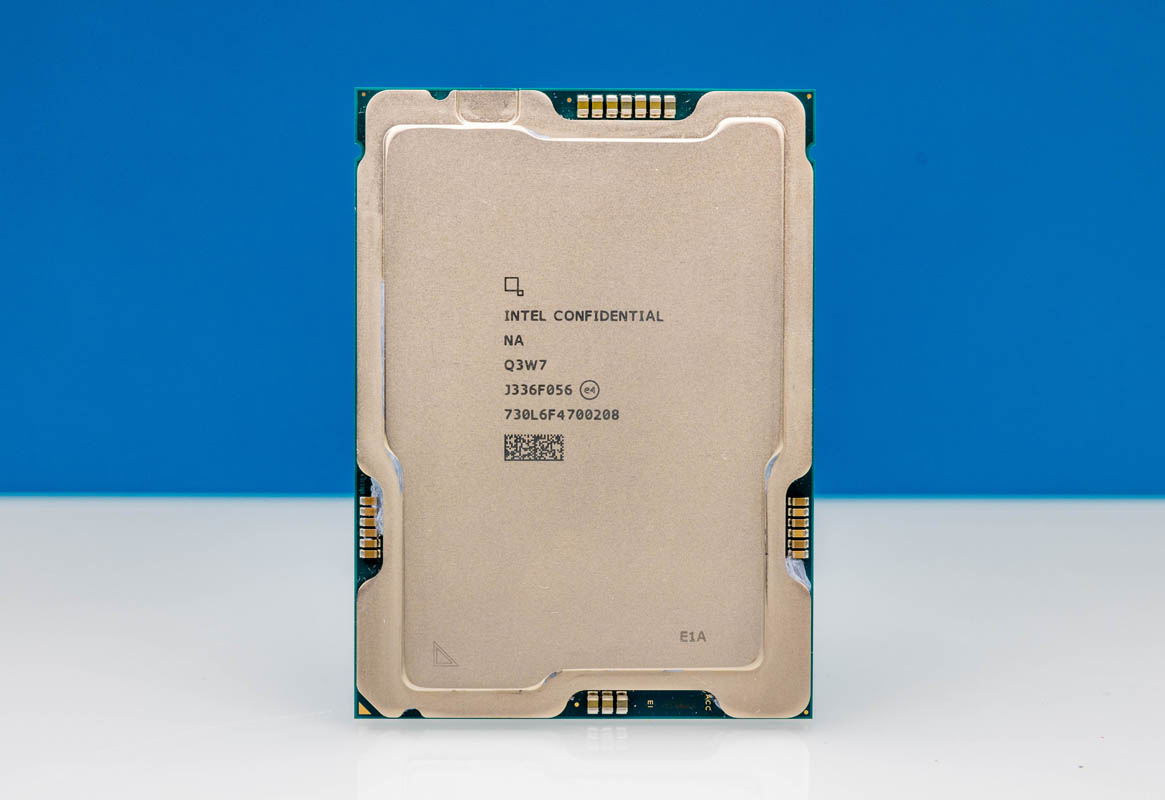Ultra doesn't really help either as it does give the impression of the superior product but superior how? Most likely MTL won't have superior top end performance so then the meaning is still obscure and it also gives no indication that it's a new architecture.
It likely will have superior top end performance, in the segment it's competing in. MTL isn't likely to be replacing RPL-HX systems.
The only thing it likely won't be superior in is ST max, by like ~5%. Should honestly be close to margin of error stuff. Considering everything else is supposed to be better, saying MTL isn't a superior product vs RPL, again, just sounds disingenuous to try to get some other random point across.
Ultra can, and many times has, just meant the same CPU with a higher frequency or more cores. Ultra is just more marketing obfuscation to get you to buy the more expensive product.
A more expensive product... that is newer and better? What??
Apparently I did. People don't talk in 9th gen, 10th gen terms.
They do. That's literally what people say. I have a 9th gen i5. I have a 12th gen i7.
They're lucky if they understand i9 > i7 or Ryzen 5 < Ryzen 7.
This is such a reach. If you think the general population doesn't know 9 is greater than 7, then you also must believe most people haven't passed like 3rd grade lol.
If you can't clearly decipher what is what in my examples, that is the same thing consumers see when they go to buy a laptop.
No. People who recommend a 12th gen i9 will have a better idea on what they are buying than people buying a 8000 series ryzen 5. All the differences (TDP, binning) that can apply to the 12th gen i9 apply to the Ryzen counterpart, while also having the added caveat of all the different generations (Zen 4-2) also counting for differences.
What is this harm you speak of? Do you think AMD is selling 7020s CPUs for the same price as 7040 CPUs?
The harm is people knows less abt what they are buying. Not that they knew everything before this new naming scheme, but they did know
more.
No, the greater cache and improved efficiency (or clock scaling at the upper end) allowed RPL like 15% improvement in games, I literally just posted a chart showing that. It also had higher official memory speed support which is a bigger deal in laptops.
The chart is irrelevant because most of that gain came from the clock scaling- as you said in the upper end. Even if the i5 used RPL silicon, that clock scaling wouldn't have been relevant because Intel would have artificially limited frequency regardless to ensure that the upper tier RPL silicon sells.
Say hello to the
13th gen i3-1305u with a 1P4E configuration and 1.6/1.2 GHz base clock.
Oh dang I was wrong. That's ma fault.
To me, selling that 1305u as an i3 is way worse than AMD selling Zen 2 as part of their 7000 lineup but that is my take on it.
Except people expecting an 1305u will get what they should be expecting (at least compared to buyers of AMD). Should there be more cores in that segment? Sure. But it is a low end GLC (well marketed as RPL prob lmao) product. No one is going to be expecting ARL i3 performance in this product.
AMD selling Zen 2 as their 7000 series is worse, because people could also associate the 7000 series as having Zen 3 or Zen 4 cores/features. When they buy a 7320u, they might expect a 7340 level of performance because that's what their friends got when they said, wow my brand new Ryzen 3 has amazing performance.
This isn't opinion based.
If you disagree, that's fine, but there's nothing of an argument there outside of opinion and to critique one or the other (but not both) for how they handle it is silly.
It's not an opinion that consumers know products by the generation and tier. Intel still has generation and tier first. AMD hides the generation, instead putting the year in front. That is more misleading for general consumers than what Intel is doing.
You believing it is better to have it as 2nd digit or is more misleading is your unprovable opinion or preference as again, any argument one way can be made in the opposite direction.
Unprovable opinion or preference? Are you seriously telling me that consumers are more likely to look at the 3rd digit than the 1rst digit in AMD's new naming scheme? It might be unprovable, since I doubt there are any studies on this lmao, but I think it should be obvious consumers are drastically more likely to just pay attention to the "generation" and "tier" digits, which have been the 1rst two digits for a while now. The problem is that AMD is replacing the "generation" digit with a new "generation" meaning- the year- rather than what "architecture generation" the product is from. Misleading.






